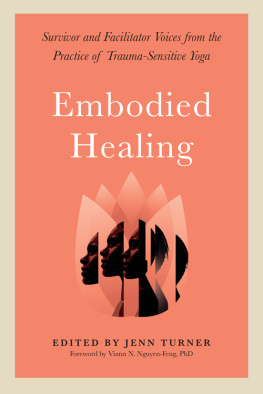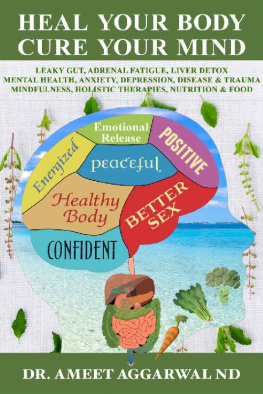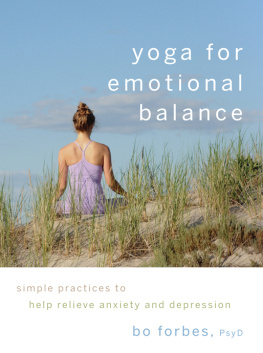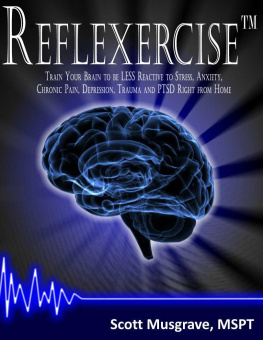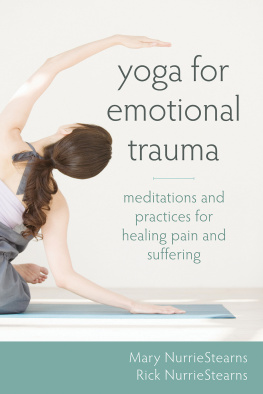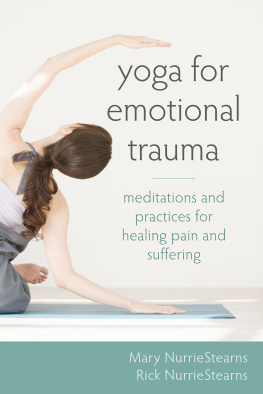For my son, Skye. I never would have imagined I would be giving birth to a book and a baby at the same time, but it was always meant to be. Your heartbeat inside of me was all the courage I needed to lay to rest generations of inherited trauma. If you someday pick up this book, I hope there will be little that you recognize or relate to, because your life will have followed a much gentler path. I love you more than you will ever know. Thank you for choosing me to be your mom.
Contents
The thing you are most afraid to write. Write that.
Nayyirah Waheed, salt.
H eres the truth: I was scared shitless to write this book. Filling these pages with the wisdom of my wounds has been the most vulnerable and courageous act of my life. While I have led a charmed existence by many accountsI was raised by loving parents, earned a college degree, and have always had a roof over my headthe deeper story of my life is not so shiny. It has been dark, messy, turbulent, confusing, terrifying, and filled with more shame and setbacks than I can count.
I was given an entire year to write this booka long time in the world of publishingand I missed every single editorial deadline along the way. Every time I sat down to write, I was plagued by self-doubt and feelings of deep unworthiness. I came up with a million ways to procrastinate, then blamed myself for being lazy. The truth is, I wasnt lazy at all. I was afraid. Terrified, in fact.
When I first told an acquaintance outside of my close circle of friends and family that I had a book deal, he said incredulously, Wow, how did you get a book deal? You dont even have a PhD next to your name! Immediately, I felt myself shrink. He was right. Im not a doctor, psychiatrist, psychologist, or licensed therapist. Who the heck was I to think I was qualified enough to tackle the incredibly complex issue of trauma? What the fuck was I thinking? And then it hit me. I wasnt thinking. I was feeling.
My experience with trauma comes from feeling the grip of its dark claws closing around my throat. It comes from hitting rock bottom and climbing my way out, only to find I had so much further to fall. I know trauma because it burrowed into my body and lived in the marrow of my bones. For most of my life, it has fed my fear, fueled my anger, sabotaged my relationships, shut me down, and shut me up with shame.
A few years ago, I stepped onto a stage to speak publicly about my trauma. Although, to be honest, trauma wasnt a part of my vocabulary back then, so I called it by the only name I knew: domestic violence. My voice wavered and tears streaked down my face as I bared my soul to the one hundred people in the room and more than half a million more watching live online. I had shared my story before in smaller, safer spacesat advocacy meetings for domestic violence survivors and charity events where everyone championed the same cause. I always left those gatherings feeling empowered, uplifted, and more resilient.
This time felt different. Though my voice was reaching an audience bigger than I could have imagined, somehow I felt infinitely smaller. There was no wave of relief, only the familiar knot of fear. It was the most important stage I had ever stood on, and I felt a responsibility to distill the darkest chapter in my life into something neat and tidy that would inspire people rather than make them turn away. Looking back, I know why there was no solace to be found. I spoke only a part of my truth and kept hidden what hadnt yet healed. In all fairness, at that time I didnt fully comprehend all the wounds I still carried. We do the best we can with the tools we have. On that day, I stood onstage with a hammer but no nails.
Outwardly, I was a vision of health and success, but on the inside I felt damaged and lost. We like stories with happy endings. But trauma robs us of a clean narrative. I didnt know how to give voice to the fact that I still had nightmares all the time and slept with a hammer under my bedand sometimes even a knife under my pillow. I didnt know how to find words to describe my crippling anxiety. I didnt know how to talk about my trust issues, jealousy, or explosive rage. I didnt know that so much of the healing work I thought I had done was actually spiritual bypassing. And I certainly didnt know that it was possible to wind up in another incredibly toxic relationship that would blow the lid off all the years of progress I thought I had made and leave me feeling like a failure and a fraud.
What I did not understand at the time was that the tracks of trauma had been laid long before domestic violence was ever part of my story. It started as early as age five. As I now know, childhood trauma can set us up for a lifetime of setbacks, making us more prone to posttraumatic stress disorder (PTSD), depression, dissociation, substance abuse, and a range of health problems as an adult.
Unresolved trauma can rob us of our physical and emotional health, our connection to self and others, and our connection to life. Yet many times were not even consciously aware that we have been traumatized, which makes us blind to all the ways in which trauma has shaped our lives, relationships, and behavior. I, like many others, was stuck in an unconscious pattern of reenacting my trauma over and over again that would last until I eventually broke downor broke through.
My breakdown moment came after I stood on that stage and made a sacred vow to myself and the world to never be in an abusive relationship again, only to find myself right back where I had started. The partner was different, but the pattern was the same, and all the years of work I had done to suture my soul were unraveled in an instant.
The floor of my rock bottom fell out from under me when I received a call from the founder of the online platform that hosted my speech, informing me that my speech had been removed from the site following a letter from my abuser, who claimed slander and threatened legal action, despite the fact that I never revealed his name or identity in my speech. Like many abusers, he set out on a mission to harass, intimidate, and publicly discredit me. He sent letters to companies I worked with, calling me mentally unstable, a liar, and an abuser in disguise. Fortunately, every company stood behind me in solidarity, with the exception of the one that pulled my speech. Despite the overwhelming support, the shame I felt threatened to swallow me whole.
The soil for my shame was the deeply buried belief that maybe he was right and I was an abuser in disguise. In my work with survivors of intimate partner violence, a common thread among most is the feeling they are somehow at fault. Abusers deny, minimize and blame, while survivors feel shame. Make no mistake, every bit of the abuse I experienced was very real, as it is for all the survivors I have worked with. I had been kicked, strangled, threatened with death on multiple occasions, verbally abused, financially controlled, and psychologically manipulated. But like so many survivors, I blamed myself, not only for winding up in an abusive situation but also for being a part of the cycle of violence. I couldnt reconcile what I knew to be my own personality with the rage and the sometimes explosive reactions that uncontrollably erupted when I was attacked or triggered, nor could I understand the hurtful words and shocking profanities that came out of my mouth when I felt harmed or threatened. It was like the invasion of the body snatchers; the kind, easygoing, nonconfrontational person that I knew myself to be in all other situations disappeared within the walls of those toxic relationships. As Bessel van der Kolka Dutch psychiatrist, renowned trauma expert, and author of



